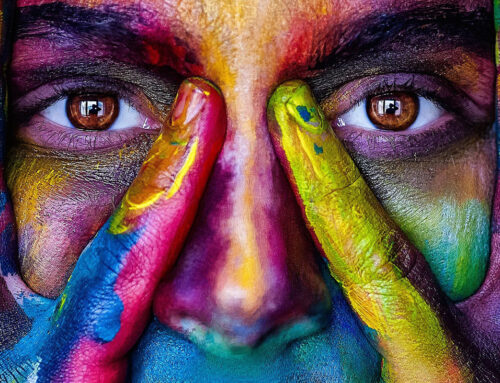If you’re one of the many people who suffer from social anxiety disorders, you may have tried various treatments from a mental health professional. Medication can help to some extent, but treating social anxiety varies in success from person to person. Psychotherapy can also be helpful, but it may take a long time to see results. There is an alternative. Hypnotherapy for social anxiety, although often overlooked is recognised as a valid medical procedure even though it’s not currently offered by the NHS. It’s a form of cognitive hypnotherapy that has been proven to help people with mental health conditions in overcoming social anxiety.
What is social anxiety?
Social anxiety disorder is fear of social situations that lead to feelings of anxiety, self-consciousness, and embarrassment. You may avoid situations where you might be judged or feel like you’re being watched. Or, you may go into them feeling anxious and stressed.
There are different types of anxiety disorders. Generalized social anxiety disorder (SAD) is the most common. If you have SAD, you may fear any type of social situation. Performance anxiety is another type. This is when you’re anxious about doing something in front of others, such as public speaking or singing.
Agoraphobia is another type of social anxiety disorder. This is when you’re afraid of being in a situation where it would be hard to escape if you had a panic attack or felt like you were going to faint.
What are the symptoms of social anxiety?
Social anxiety disorder is characterised by irrational fear and avoidance of social situations. This can lead to a wide range of symptoms and triggers.
Below are some of the common ways in which social anxiety manifests itself.
- During activities like talking to strangers, starting conversations, speaking on the phone, or even working and shopping. All of these can seem daunting to some people
- Avoiding or worrying a lot about social activities such as group talks, dining with friends and parties
- Self-consciousness about areas deemed embarrassing, like sweating or blushing
- Feeling disheartened when watched or compared to others
- Low self-worth/self-esteem, fearing criticism and avoiding eye contact
As well as avoidance techniques and increased low mood, social anxiety attacks can cause physical symptoms, such as:
- Nausea
- Trembling
- Sweating
- Heart palpitations
Although panic attacks can be incredibly distressing and may feel like hours, they generally only last one to two minutes and cause no long-term physical harm. However, they can lead to accidents happening in a temporary fog of judgement.
What causes social anxiety disorder?
The exact cause of social anxiety isn’t known. It may be due to a combination of genetic and environmental factors.
Some people are born with a temperament that makes them more prone to anxiety. Social anxiety may also run in the family, for instance, if any of your parents have a medical history of experiencing anxiety disorders.
Life experiences may also play a role. For example, if you’ve experienced bullying, teasing, or humiliation, you may be more likely to develop social anxiety later in life.
How is it treated?
The most common treatment for social anxiety disorder is psychotherapy. CBT and clinical hypnotherapy work well on their own, and their effectiveness together has been documented in the American Journal of Clinical Hypnosis.
What is hypnotherapy?
Hypnotherapy is a type of psychotherapy that uses hypnosis. Although there are several professional organisations for hypnotherapy, it is voluntarily regulated, which means it is not yet accepted as standard medical care in the NHS. However, clinical trials have proven that talking therapies such as hypnosis used alongside Cognitive Behaviour Therapy (CBT) is an effective method to reduce anxiety.
When you visit a clinical hypnotherapist your initial consultation will begin by talking through your symptoms and how they’re affecting you. The therapist will then explain how hypnosis works. They may also give you a brief guide as to what will happen during the hypnotherapy sessions.
During the first hypnotherapy session, the therapist will encourage you to relax and focus your attention on their voice and words. This state of relaxation and focus is called a trance.
If you feel anxious about going into a hypnotic state, don’t worry. You’ll be fully in control of the situation at all times.
In a trance, your critical faculty (the part of your mind that sceptical of new ideas) is bypassed. Hypnosis helps to relieve symptoms of social anxiety using relaxation techniques that enable you to enter a deeply relaxed state. Hypnotic induction, just like meditation, enables focused attention allowing your subconscious mind to become more open to hypnotic suggestion.
The hypnotherapist will make a post-hypnotic suggestion that will help you overcome your anxiety. For example, they may suggest that you’ll feel more relaxed in social situations or that your anxiety will no longer stop you from doing things you enjoy.
It’s important to state that hypnosis for anxiety is not suitable for everyone and those with serious mental health problems such as a personality disorder or psychosis could make their condition worse.
How hypnotherapy helps you to relax
Hypnotherapy can help you to relax. One of the most important things about hypnotherapy is that it helps you to feel safe and comfortable. This allows you to let go of any tensions or worries that may be preventing you from relaxing. Most people with a social anxiety disorder may lack the confidence to attend treatments. Thanks to the power of the internet clients can now attend hypnotherapy from the comfort of their own home.
Once you have relaxed, the hypnotherapist will help you to access a more relaxed state of mind. In this state, it becomes easier to let go of any thoughts or beliefs and reduce anxiety.
How many hypnotherapy sessions are needed for treating anxiety
Generally, hypnotherapy for anxiety will require between 3-6 sessions. However, this may vary depending on the severity of your anxiety and how you respond to the session.
Probably the most important session is your initial consultation. This is where together the client and therapist will discuss concerns, explore the changes they would lie to make and understand if hypnosis is the right kind of therapy for them. It’s also a great opportunity to get to know the hypnotherapist as feeling comfortable is probably the most important factor towards success.
Ultimately you should walk away with a good understanding of what anxiety is, how it happens and why you feel like you do.
Does hypnosis work for social anxiety disorder?
Hypnotherapy is a form of treatment that can help you to manage your anxiety and live a more normal life. If you feel anxious and are feeling anxiety symptoms such as a racing heart, sweating or feeling faint, then it could be time to speak to your GP.
Your GP will be able to rule out any other causes of your anxiety. They may also recommend medication or refer you for psychological therapies such as CBT, exposure therapy, hypnotherapy or self-hypnosis such meditation as to help with your anxiety.
Clinical trials have found that a combination of CBT and hypnosis is an effective treatment for anxiety. In one study, patients who underwent this form of treatment had a significantly lower chance of their anxiety returning compared to those who only received CBT.
Alternatives to social phobia hypnosis
When dealing with social anxiety, exploring various avenues to find what best addresses your unique needs is essential. While many find relief through social phobia hypnosis, leveraging the subconscious mind to address the root cause of anxiety, others might seek alternative approaches.
One noteworthy alternative is Cognitive Behaviour Therapy (CBT). This method addresses social anxiety by helping individuals identify and challenge their negative thought patterns. People often experience intense fear in social situations due to distorted perceptions, and CBT can be an effective tool in reshaping these misconceptions and promoting well-being.
Understanding the root cause of your social fear is pivotal. Some may find that their anxiety stems from family history, making considering genetic and environmental factors important. Knowing the origin can help tailor the most effective approach, whether hypnotherapy or another method.
It’s common for people with social anxiety to experience test fear or feeling overwhelmed during social gatherings. These instances can be particularly challenging, but techniques learned in CBT, like grounding and breathing exercises, can prove beneficial in managing anxiety levels.
Additionally, while hypnosis works by inducing a hypnotic trance to reframe one’s thought process, CBT is more about engaging the conscious mind in actively rethinking and restructuring thought patterns. Both aim to reduce social fear and improve overall well-being but differ in approach and execution.
Understanding how a hypnotherapy session operates can also be helpful when considering alternatives. A typical session works with the subconscious mind, helping to alter negative thought patterns associated with social anxiety. On the other hand, CBT involves conscious effort and regular practice to achieve long-lasting change.
While hypnosis can be a valuable resource for those struggling with social anxiety, it’s not the only path toward well-being. There are various methods available, whether through understanding your family history, facing your test fear, or learning to manage feeling overwhelmed at a social gathering. Ultimately, finding the right approach is a personal journey to address the unique facets of your social fear and enhance your overall well-being.
Ready to talk about hypnotherapy for social anxiety?
If you’re considering hypnotherapy for anxiety, make sure to visit a qualified and experienced therapist. Check to see if they’re registered with a professional body such as the British Society of Clinical Hypnosis or the National Council for Hypnotherapy.
If you’re not sure whether hypnotherapy is right for you, ask your GP for advice. They will be able to discuss your options and help you to find the right treatment for your needs.
It’s also important to feel comfortable and relaxed with the hypnotherapist. Your feelings matter and hypnotherapy works best when you’re feeling calm and able to trust the person you’re working with.
If you’re considering hypnotherapy for overcoming social anxiety, I am always happy to help, just call 07966 464 005 or get in touch via this contact form. I provide hypnotherapy treatments in London and Online using an approach called Solution-Focused Hypnotherapy. This type of therapy is based on the idea that solutions to problems can be found by focusing on the positive aspects of a situation.
It’s worth noting that clinical hypnosis is not only helpful for treating symptoms of anxiety but can help reduce stress, build self-esteem, help overcome phobias and fears, treat depression and help you feel calmer so you can get on with daily life. Hypnotherapy can also be helpful for dealing with anxiety-related problems such as irritable bowel syndrome.
Hypnosis for social anxiety at home
Meditation is a great way to practice self-hypnosis at home. Learning how to become relaxed and enter a relaxed state when under stress allows you to access deeper levels of the unconscious mind.
Phrases such as “I am in control” or “I am safe” can be repeated to yourself either out loud or silently until you feel your anxiety start to dissipate. It’s also important to focus on your breathing during your self-hypnosis sessions and take deep, slow breaths in through the nose and out through the mouth.
If you’re interested in learning more about how to do self-hypnosis, there are plenty of books, websites and apps available that can provide you with guidance. However, it’s always best to seek professional help if you’re struggling with social anxiety.











